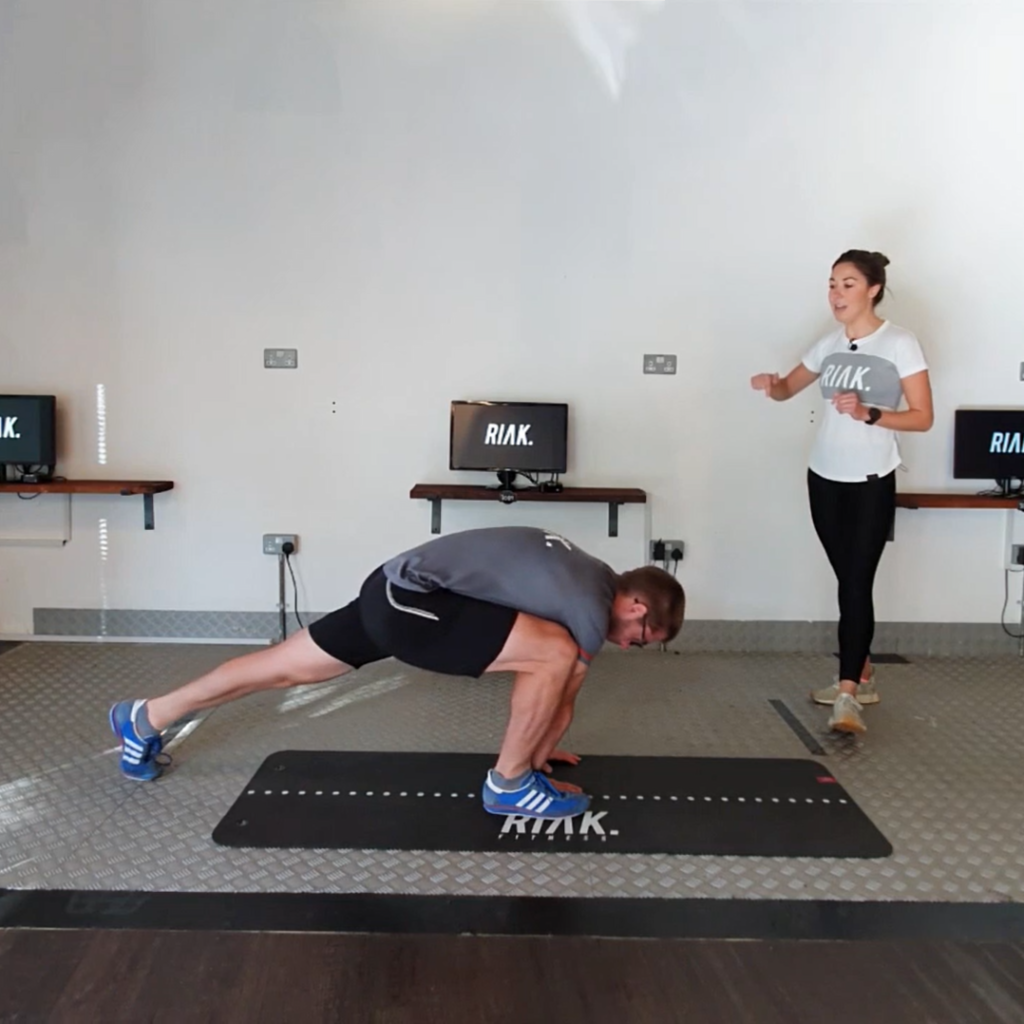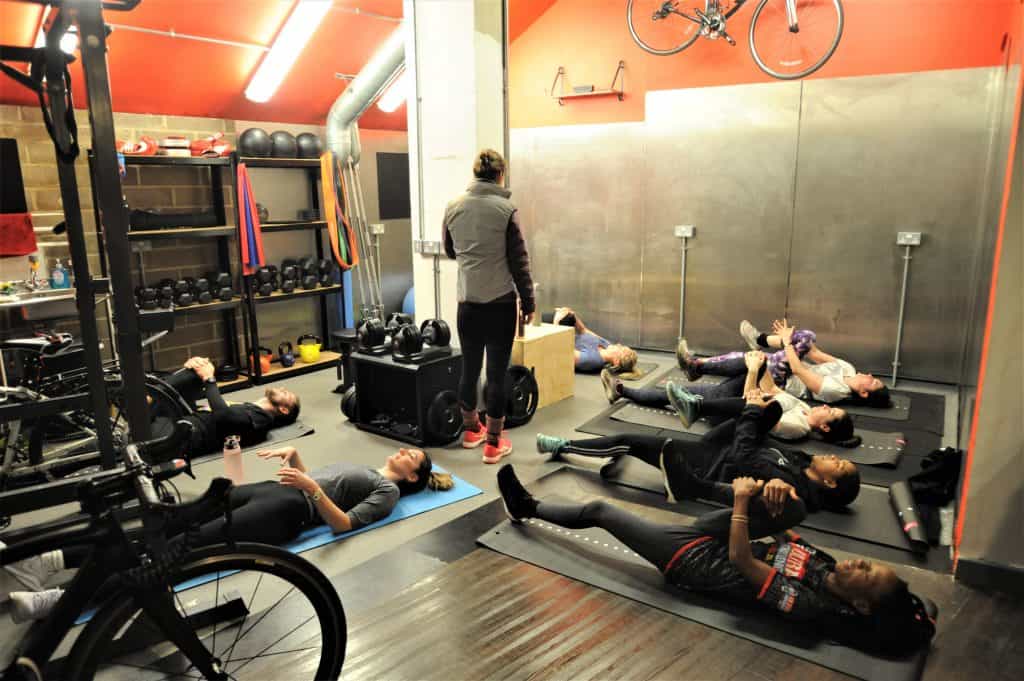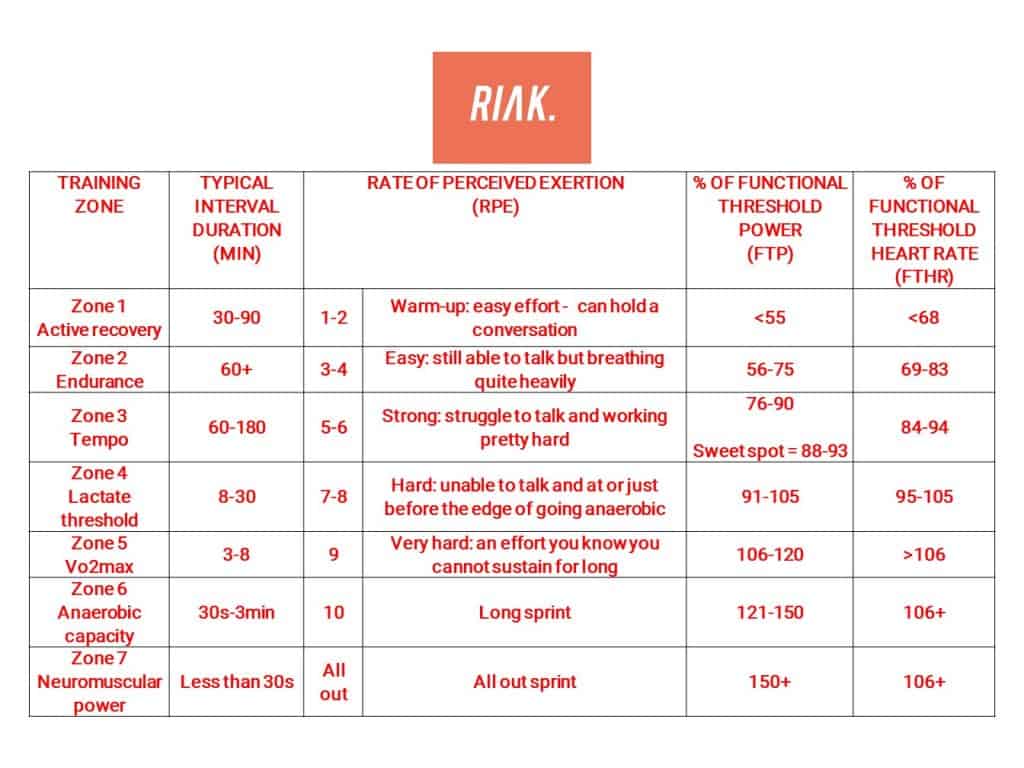Cycling Exhaustion Protocol

Use this chart to help you decide when enough is enough during high repetition sessions. The goal with the exhaustion protocol is to ensure that your training remains high quality and that you are still hitting the right energy system i.e. anaerobic or aerobic. Please note, some sessions might not be appropriate for implementing an […]
Do you really know what ‘FTP’ means?

WHAT IS YOUR FUNCTIONAL THRESHOLD POWER? Since the dawn of the online training age, we have become increasingly obsessed with data and metrics. None more so than our FTP. We wear it like a badge of honour, a badge that sometimes… maybe… possibly… every now and then, we embellish a touch… whoops! Something to bear […]
RIAK Know How – Upper body stretch routine
 https://youtu.be/yRBPX2npANI
https://youtu.be/yRBPX2npANI Dynamic Stretch Routine
 https://youtu.be/m9YxBQ-4n54
https://youtu.be/m9YxBQ-4n54 To ERG or not to ERG

One of the most frustrating things about fitting in training around work and social commitments is having your favourite break-through session planned for the morning and then realising your assumed 90-minute slot is really a hectic 45-minute session followed by what feels like a 90% chance of stress induced pulmonary implosion as you leg it for the train minutes after a monstrous run set.
Post-cycle/run stretch routine
 https://youtu.be/r4snPjd3gbQ
https://youtu.be/r4snPjd3gbQ Training Your Energy Systems

Click here to download the Training Zones chart
Recovery Strategies For Your Mind – Time Pressure

One of the most frustrating things about fitting in training around work and social commitments is having your favourite break-through session planned for the morning and then realising your assumed 90-minute slot is really a hectic 45-minute session followed by what feels like a 90% chance of stress induced pulmonary implosion as you leg it for the train minutes after a monstrous run set.
Recovery Strategies For Your Mind – Losing or Maintaining weight

Concern about bodyweight is a psychological issue I would aver affects every single athlete. The motivations for losing or maintaining a certain weight can be wide ranging but I fear there is a great deal of confusion out there as to how to go about it. Unfortunately, the safest approaches take time and with many unwilling to commit to long-term change, they resort to more extreme methods, the consequences of which, can be extremely hazardous.
Recovery Strategies For Your Mind – Part 3: Appearance

We live in a time when we are bombarded with images of a so-called ideal aesthetic. It is often athletic, heavily muscled yet extremely lean and with very bright white teeth. If you do not fit this aesthetic, like the overwhelming majority of the population of this planet do not, then it can be a source of anxiety and insecurity.
